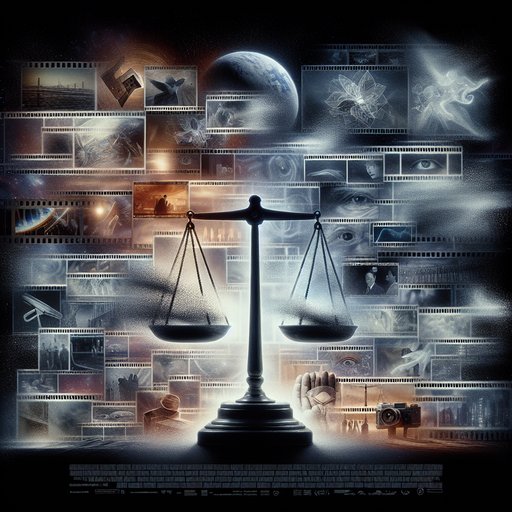
New trailers for The Ugly — a Korean thriller from the director of Train to Busan — have arrived, and they lean hard into the film’s preoccupation with memory [3][2]. Trailers are never neutral; they are cultural instruments that prime expectations, anxieties, and, crucially, policy instincts. In a season when institutions are quick to add warnings or gates, the arrival of a memory-obsessed thriller invites a familiar question with fresh stakes: when do we protect audiences, and when do we slip into policing their imaginations? The conversation is bigger than one film, but The Ugly gives us a sharp lens: if memory is fragile and constructed, then attempts to shield us can accidentally sand it down — and that, too, is a form of forgetting [2].
Let’s start with the obvious: trailers are the most public negotiation between art and audience. The Ugly’s teasers advertise a mystery that explicitly revolves around memory, a theme that guarantees both intrigue and discomfort [1]. Add the imprimatur of the Train to Busan director and you get mainstream attention with built-in expectations of intensity [2]. In other words, the public square will meet a story about unreliable recall carrying the adrenaline of a hitmaker — a perfect recipe for renewed arguments about advisories, age-gating, and suppression.
That debate is not hypothetical; it is structural. Promotional paratexts are where calls for content flags and platform restrictions tend to crystallize, often before anyone has seen the full work. But a film interrogating memory’s distortions demands a different reflex than blanket caution. If the point is to surface how we misremember, overprotecting the audience risks performing the very amnesia the film interrogates [1].
History reminds us that images don’t simply record; they rewire. The twentieth century’s most consequential photographs became the scaffolding of public memory, proof that a frame can widen empathy or calcify bias [3]. We inherit their power and their limits. When institutions try to ‘protect’ by narrowing what can be shown, they often diminish the public’s capacity to metabolize difficult truths — the very muscles those images helped us build [3].
Cinema knows this slippage well: culture doesn’t just forget; it tidies. The persistence of misremembered movie lines is trivial and telling — evidence of how collective memory smooths and simplifies even our most quoted moments [4]. If we misquote what we love, we will certainly misfile what unsettles us. Censorship accelerates this erosion by deciding which edges we’re allowed to keep, while thoughtful context helps us hold the complexity without sanding it away [4].
The stakes extend beyond screens. When a Tunisian brutalist landmark faces demolition despite public outcry, it is not labeled censorship, but the effect rhymes with erasure: a material severing of civic memory embedded in concrete and plaza [5]. Architecture, like film, shapes what a community is allowed to remember in public. Whether by wrecking ball or redacted frame, the question is the same: are we safeguarding people, or making difficult inheritances conveniently invisible [5]?
Policy reflexes offer further cautionary tales. A recent critique of Texas’s ban on a new food technology argued that prohibitionism is a poor substitute for transparency and trust-building; bans tend to harden skepticism, not soothe it [6]. On the other end of the spectrum, public reckoning can enlarge understanding: commentary urging Western audiences to learn more about China’s World War II experience underscores how neglected histories warp our moral map [7]. Likewise, calls for an African-Caribbean summit to address reparations point to a generational demand for open, reparative dialogue rather than avoidance — a culture of confronting, not cordoning off, the past [8].
These are all memory politics, and they warn against shortcuts. So what does that mean for The Ugly and for us? First, trade in blunt bans for layered context: robust advisories, clear synopses, and post-screening resources that respect autonomy while guiding reflection. Second, build community wellbeing through agency, not abstinence: opt-in modes (age gates, content tools) paired with facilitated conversations.
Third, mirror best practices from archives and museums: preserve access while surrounding works with provenance, history, and dissent — the intellectual ventilation art deserves. Finally, teach memory literacy: the capacity to spot how stories, quotes, and images mutate over time, so audiences can meet unsettling art with discernment rather than panic [3][4]. If we want creativity to widen empathy and imagine fairer futures, we must protect people from harm without policing the horizons of what they are allowed to see, remember, and become.
Sources
- Another Trailer for Korean Mystery Thriller 'The Ugly' About Memory (First Showing, 2025-09-01T22:33:52Z)
- Trailers for the Korean Thriller THE UGLY From the Director of TRAIN TO BUSAN (GeekTyrant, 2025-09-03T12:05:00Z)
- The Triumph And Tragedy Of The 20th Century: 46 Of The Most Important Images (Boredpanda.com, 2025-09-01T15:30:35Z)
- 9 Iconic Movie Quotes Commonly Misremembered (Screen Rant, 2025-09-01T23:10:31Z)
- Tunisian brutalist landmark faces wrecking ball, sparking outcry (Yahoo Entertainment, 2025-09-01T11:59:05Z)
- Texas’ ban on this new technology is short-sighted and un-American (MSNBC, 2025-08-30T10:00:00Z)
- China’s forgotten World War: The West has much to learn (RT, 2025-09-01T18:13:33Z)
- African, Caribbean Summit Should Address Reparations (Human Rights Watch, 2025-09-04T04:00:00Z)






















































